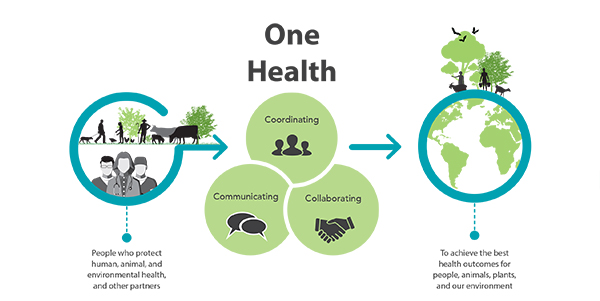One Health
Using a One Health Approach to Protect Health for All

CDC experts are working to change the way we approach public health. Specifically, CDC wants people to know that human health isn’t just about humans—it’s closely related to the health of animals (including pets, wildlife, and livestock) and the environment that we share—an approach known as One Health. In 2018, experts from CDC’s One Health Office helped strengthen global health security and capacity to prevent zoonotic diseases by collaborating with partners to conduct One Health Zoonotic Disease Prioritization Workshops in multiple countries and, for the first time, regions.
The first regional workshops were held for the Economic Community of West African States, which includes 15 member countries, and for US southern land border states. These regional workshops reflect the increased interest among partners to work together at the regional level to prepare for shared threats to people, animals, and the environment. CDC’s One Health experts also facilitated national workshops in Mozambique, Ghana, and Uzbekistan. In Uzbekistan, they pilot tested a new toolkit to help the country develop a One Health strategy to prevent the diseases identified as being high priorities.
Commonly prioritized diseases worldwide include rabies, brucellosis, anthrax, and viral hemorrhagic fevers like Ebola and Marburg. By prioritizing the zoonotic diseases that pose the biggest health threats, countries can more efficiently build their laboratory capacity, conduct disease surveillance, plan outbreak response and preparedness activities, and create disease prevention strategies to reduce illness and death in people and animals.